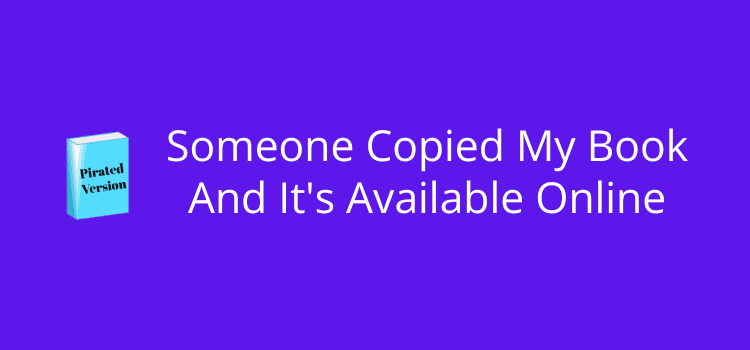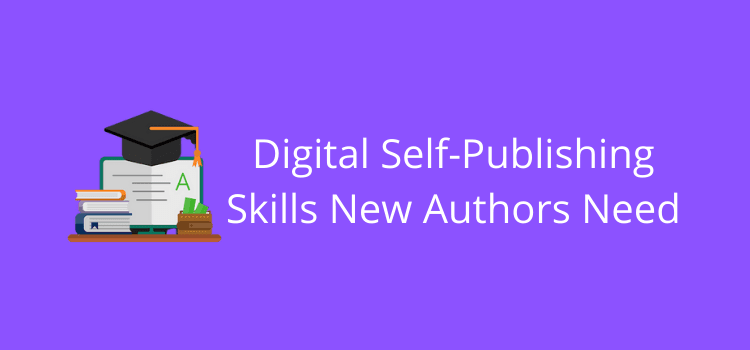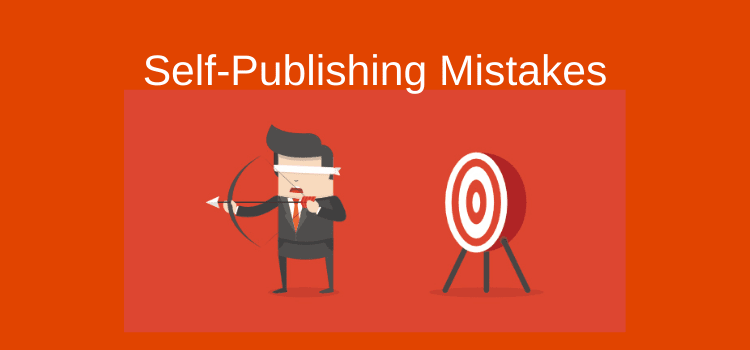
Almost every day, I see posts on Reddit, X, or Facebook where authors say, “Someone copied my book.”
It’s so frequent that I rarely pay attention any longer. Why? Because every book I have published has been copied, pirated, or made available for sale or free on shady websites.
It’s the same for most authors, whether self-published or traditionally published.
Even on Amazon, mass-market or third-party resellers are always offering my books. If I extend the scope a little further, many of my articles and blog posts have been copied in full and republished.
How piracy works and how legal safeguards don’t
Writing a book takes a lot of effort, stamina, and determination. To then see it copied, often very soon after publishing, can be demoralizing.
However, pirated books are not a new phenomenon. The practice dates all the way back to the 15th century with the invention of the printing press.
But to return to today, the ease of copying electronic files has made it extremely easy for people to copy and republish works, and at great speed.
While many new authors assume that copyright and DRM (digital rights management) will protect them, it is far from the truth.
Anyone with a little technical know-how can strip an ebook of its DRM protection in seconds, and then use the file to create and publish a new ebook.
With an ebook file, it’s then quite simple to create a PDF version and publish it as a print book.
If you think that copyright will protect you and your book, you’ll be disappointed.
Here’s what the US Copyright Office says:
“There is no such thing as an “international copyright” that will automatically protect an author’s writings throughout the world. Protection against unauthorized use in a particular country depends on the national laws of that country.”
As most hackers and scammers who pirate books are located outside the US, Europe, or Australia, you have little hope of enforcing your copyright.
What can I do if someone copied my book?
If you discover that someone published a copy of your book without your permission, it can make your heart sink. But there are things you can do to try to have it removed.
The first step is to calm down so you can think clearly.
Then, start collecting as much evidence as you can. You can take screenshots, note URLs, and keep a record of publishing dates for your book and the pirated version.
All of this information will be useful when you report the problem.
The next step is to contact the platform or ebook retailer where you found the copy.
Most reputable online book retailer sites, including Amazon, Draft2Digital, and Apple, have procedures for reporting copyright violations.
Look in their support sections for ‘Report a Violation’ or ‘DMCA Takedown’ procedures and follow the steps to notify them.
When you do, make sure to include the evidence you’ve collected and clearly explain that you are the copyright holder.
Some social media posts say that contacting by telephone can be advantageous, especially with Amazon.
If your pirated book is on a less official site or hosted overseas, your options are limited, but you can try. In these cases, it’s often difficult to find a point of contact. If you can’t find contact info on the site, try a WHOIS search to identify the hosting service, then notify them.
You can then send a cease-and-desist letter, which might scare off casual infringers.
However, don’t get your hopes up too high, because most scammers and hackers will ignore your efforts.
Can you take legal action? Technically, yes, but if the piracy is happening in a remote location or a country with weak enforcement, hiring a lawyer will likely cost you more in time and money than it’s worth.
Finally, you might find it helpful to join online author groups where authors often share their experiences with book piracy. It might not help you win, but at least you won’t feel alone in tackling the problem.
Adopt the badge of honor approach
I recall a conversation I had with a fellow author when one of my first books was pirated, and he wondered why they chose my book and not his.
“Your book must be better than mine!”
Since then, I have always taken the view that book piracy is inevitable, so take it as a pat on the back and get on with life.
Many authors take a similar view. In fact, Brazilian novelist Paulo Coelho encouraged the practice and went as far as partnering with a piracy site.
It’s an old story, but it’s still worth reading this article about his views on the subject.
Another positive aspect is that a pirated version of your book can help with your exposure and promotional efforts. It’s another mention of you and your title on the Internet, and every link helps.
Additionally, piracy can sometimes be a way for readers to discover you, particularly in markets where your book may not be readily available.
If they like what they read in the pirated version, they might go to the effort of buying an official copy of one of your other books, or even spread the word about your work.
Piracy takes a little effort, so it proves that your work is worthy of copying. If your book is being copied and shared, it means you created something worth reading.
Conclusion
If it’s the first time for you, I know how frustrating it feels. It’s easy to get angry about someone violating your rights.
However, once you calm down from the initial shock, you can think more clearly.
So what’s the best approach you can take if someone copies your book?
Out of all the options I mentioned, my favorite is to do nothing.
My reasoning is that I have a lot of things to do in life, and spending an enormous amount of time and money fruitlessly chasing book pirates is not one of them.
Related Reading: The Legal Aspects Of Self-Publishing For New Authors
Share This Article


